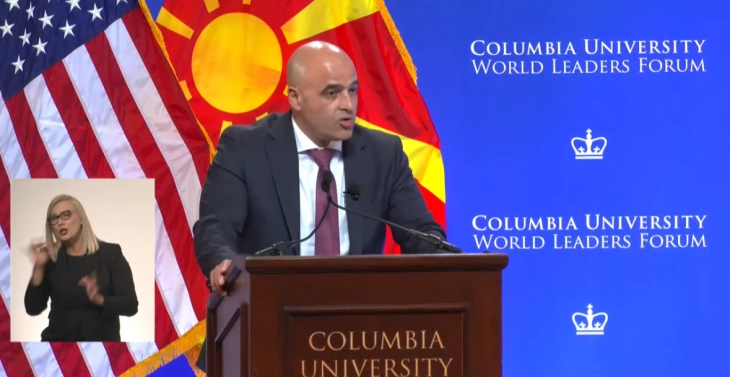Kovachevski at Columbia University: My country a rare example of how power of negotiations resolves bilateral issues

Skopje, 21 September 2022 (MIA) – My country is a rare example on the Balkans where violence, wars and economic pressure, as well as the rule that the stronger one wins are not the case, said Prime Minister Dimitar Kovachevski in a lecture at Columbia University in New York on Wednesday.
“All agreements within the country and with neighbors are functional and sustainable. This has enabled the country to make progress in the achievement of its strategic objectives,” said PM Kovachevski in the address.
Over the past 30 years, he added, we have developed a democratic model known as a functional multiethnic democracy.
“We have a system in place, the Badinter principle of double majority. These policies work because they are part of the general national policies. The Ohrid Framework Agreement, which represents a successful concept of solving identity conflicts, played a significant role in the development of this system,” said Kovachevski.
He also referred to the Prespa Agreement and the Bulgaria Friendship Treaty, saying North Macedonia is an example in the region and beyond of how ‘soft’ diplomacy and the power of negotiations can resolve bilateral and identity issues.
“With Greece, we managed to find a solution over the country’s constitutional name while preserving the citizens’ identity and language. This resulted in our NATO accession as full-fledged member. Compared to the more rational approach in the negotiations with Greece, talks with Bulgaria were very emotional on both sides and it was more difficult to find a solution. Nevertheless, with the support of France, Germany and the whole of Europe, we managed to find the right solution for the future,” noted Kovachevski.
On the war in Ukraine, the PM said it represents a threat to the democratic world, “a classical example of solving a conflict of identities by violence and hostilities instead of peaceful means.”







